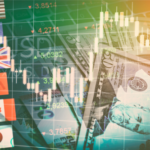Training
Remember You Are Learning From Trader, Not From Trainer

Learn the Art of Trading : Global Financial Market
What you will learn :
- Market Analysis: Understanding how to analyze financial markets, including technical analysis (studying historical price data) and fundamental analysis (evaluating the financial health of companies or economies).
- Risk Management: Learning how to manage risk by setting stop-loss orders, diversifying your portfolio, and sizing your positions appropriately.
- Trading Strategies: Developing and implementing trading strategies based on your analysis and risk tolerance, such as trend following, mean reversion, or breakout trading.
- Trading Platforms: Familiarizing yourself with trading platforms and tools used to execute trades, analyze markets, and manage your portfolio.
- Psychology: Understanding the psychological aspects of trading, including managing emotions like fear and greed, maintaining discipline, and developing a trading mindset.
- Money Management: Learning how to manage your trading capital, including setting risk-reward ratios, determining position sizes, and allocating capital effectively.
- Market Dynamics: Understanding how different factors, such as economic indicators, geopolitical events, and market sentiment, can impact financial markets.
- Regulations: Becoming familiar with the regulatory environment governing financial markets and trading activities.
- Continuous Learning: Keeping up with market trends, new trading strategies, and evolving technologies to improve your trading skills and adapt to changing market conditions.
- Performance Evaluation: Developing a process to evaluate your trading performance, identify strengths and weaknesses, and make improvements over time.
- Algorithmic trading : uses computer algorithms to execute high-speed, automated trades based on predefined strategies. Key components include real-time market data, low-latency execution platforms, and programming in languages like Python and C++. Common strategies involve arbitrage, trend following, and market making.
- & Many More…
– Trading is a continuous learning process, and successful traders are often those who are dedicated to improving their skills, staying informed, and adapting to changing market conditions.

This Course is for :
Beginners: Those who are new to trading and want to understand the basics of financial markets, including terminology, fundamental concepts, and trading strategies.
Aspiring Traders: Individuals who aim to become professional traders and need structured training to develop their skills and knowledge.
Investors: People who are already investing in financial markets and want to enhance their understanding of market dynamics and improve their trading techniques.
Students and Graduates: Those studying finance, economics, or related fields who want practical knowledge and skills in trading to complement their academic learning.
Professionals: Individuals working in finance, banking, or related industries who seek to broaden their expertise and apply trading knowledge in their careers.
Retirees: People looking to actively manage their retirement funds and seeking ways to grow their investments through trading.
Entrepreneurs and Business Owners: Those interested in understanding market trends and how they can affect their businesses, as well as exploring trading as an additional income stream.
Hobbyists: Individuals who have a keen interest in financial markets and trading as a hobby and want to deepen their understanding and skills.
Overall, a financial markets trading course can benefit anyone who wants to gain a deeper understanding of how financial markets operate and how to trade effectively within them.
Why Choose Us :
- Expertise
- Comprehensive Curriculum
- Practical Experience
- Flexibility
- Support Services
- Global Perspective
- Ethical Standards
- Continuous Learning
- Practical Tools and Resources
- Professional Certification
- Career Development
- Research and Analysis
- Community Engagement
- Feedback and Improvement
- Algorithmic Trading ( AI Robo )

Comments are closed.